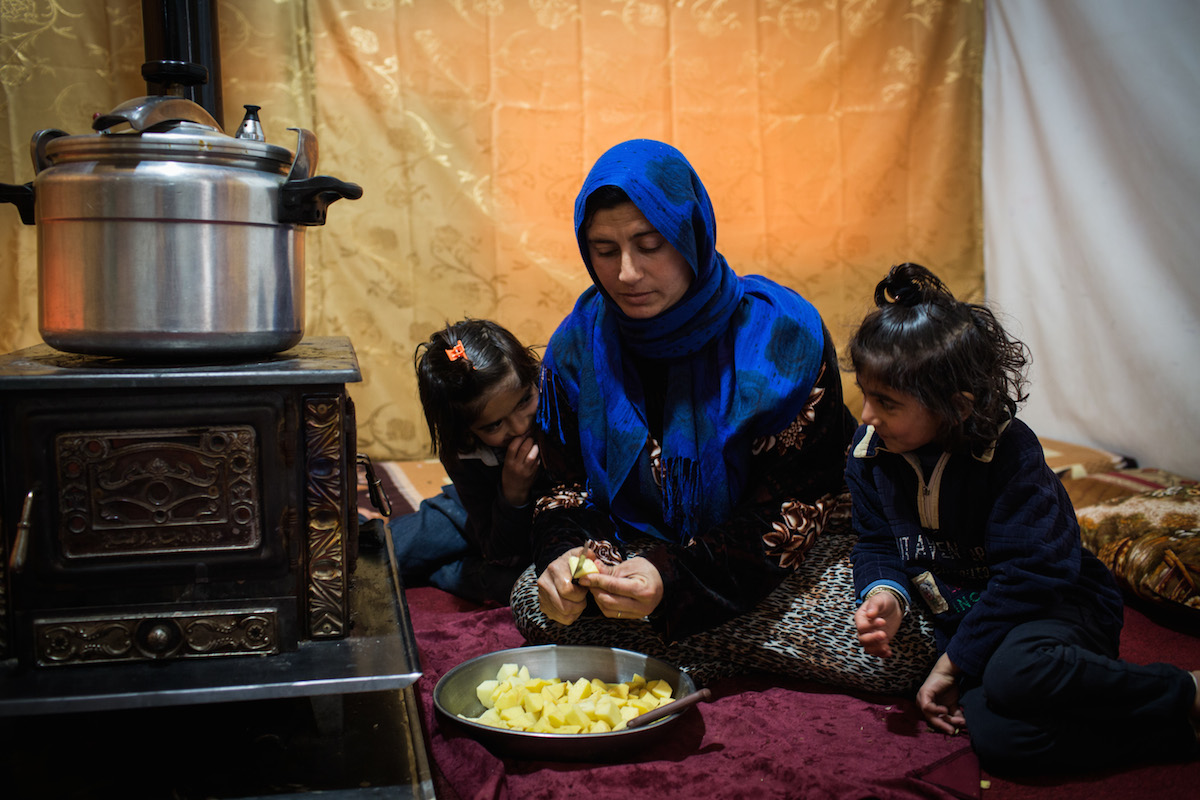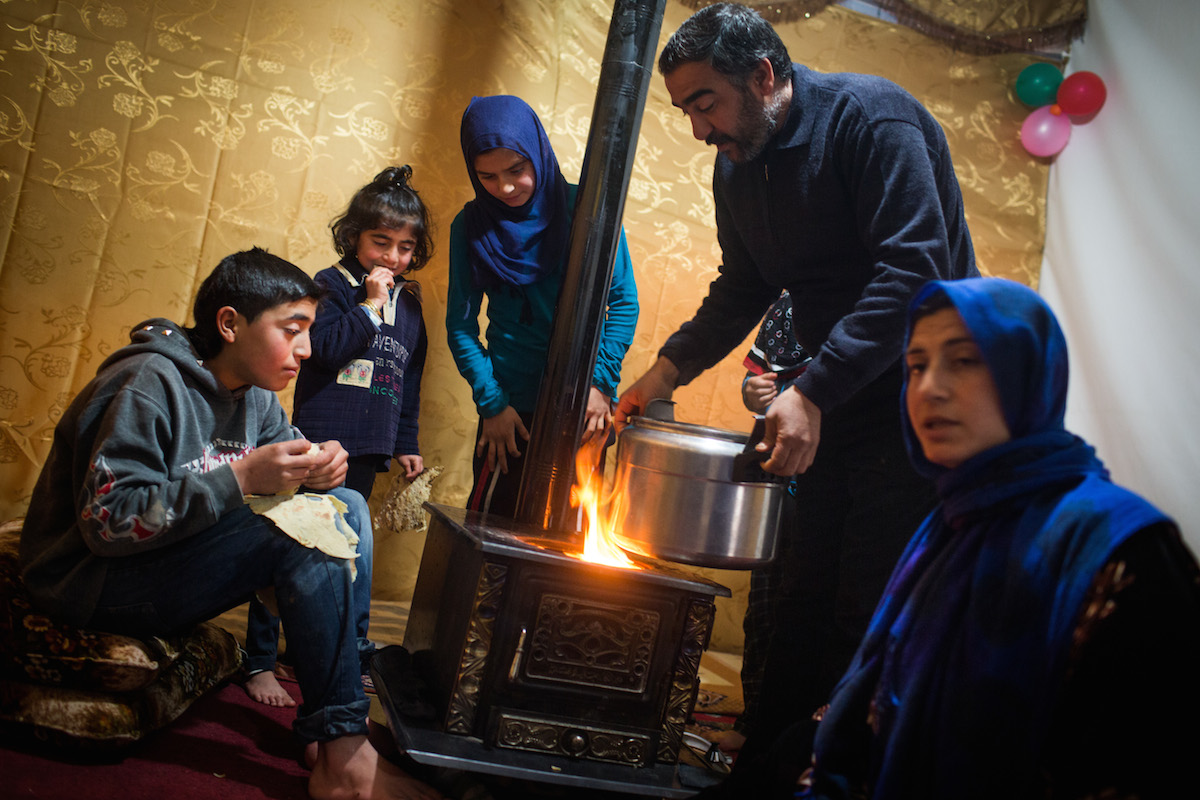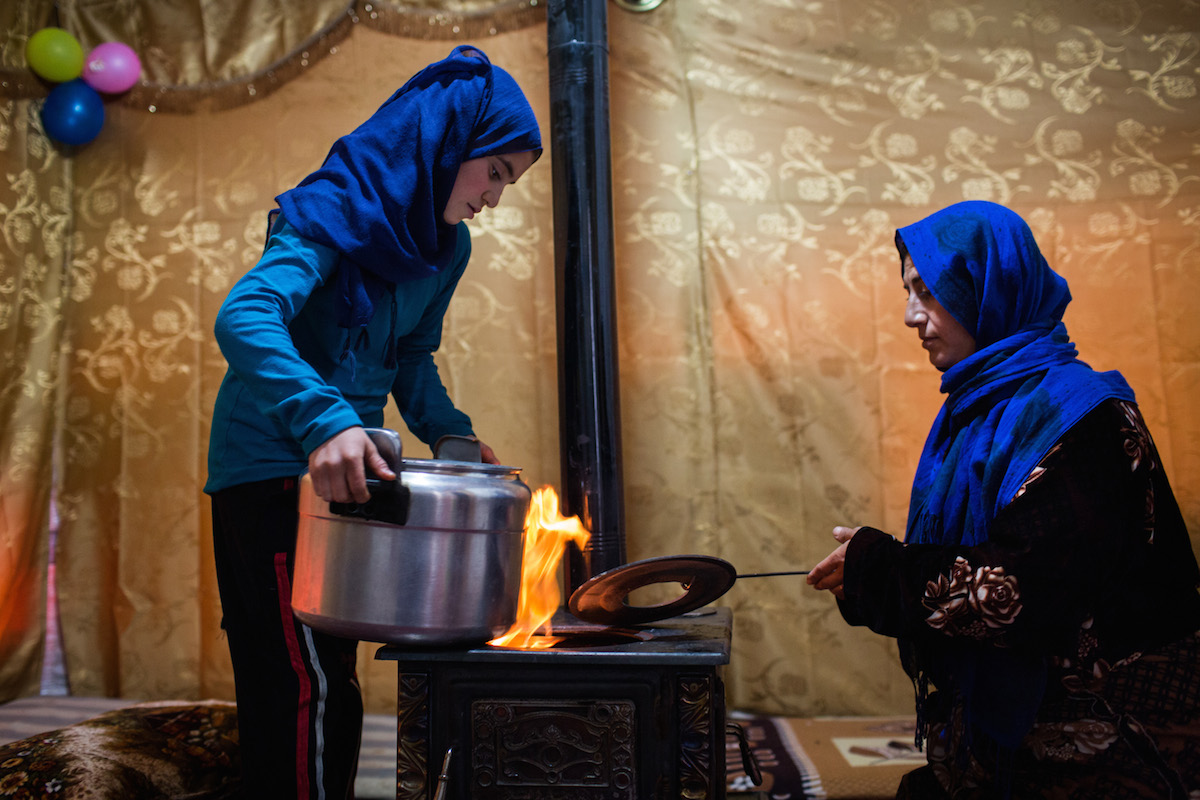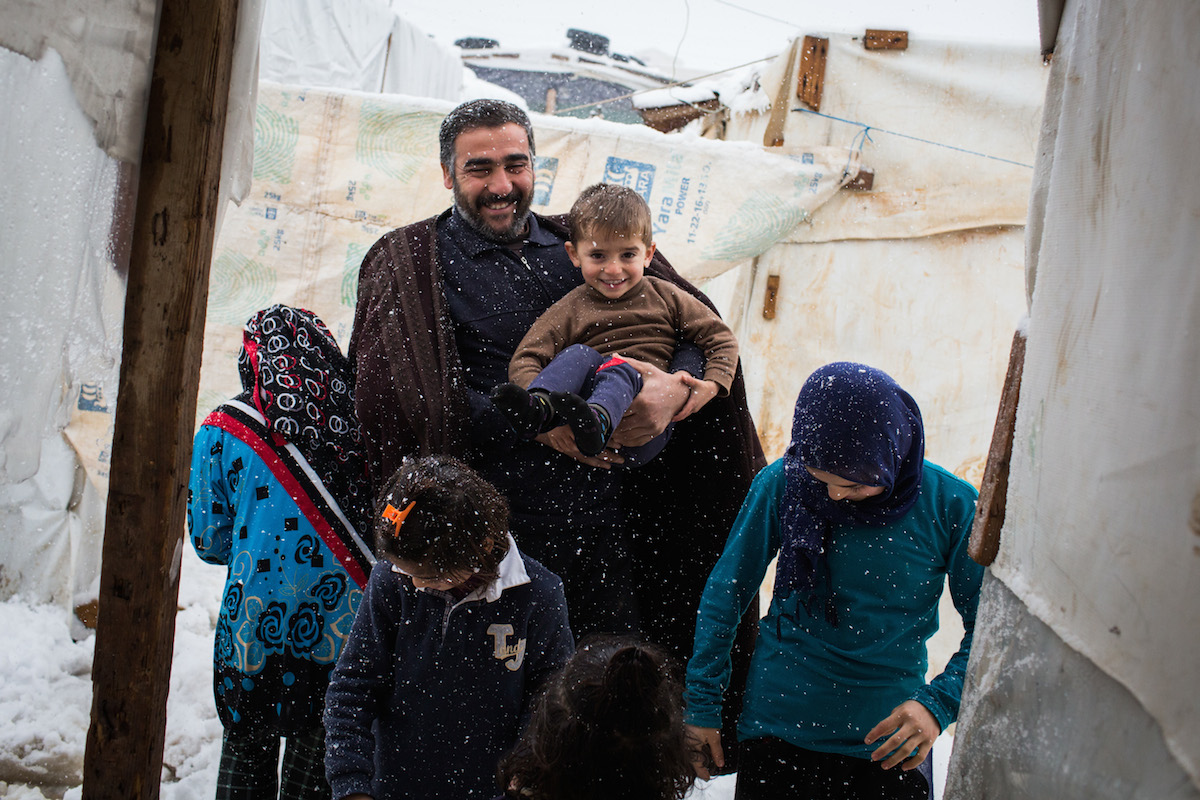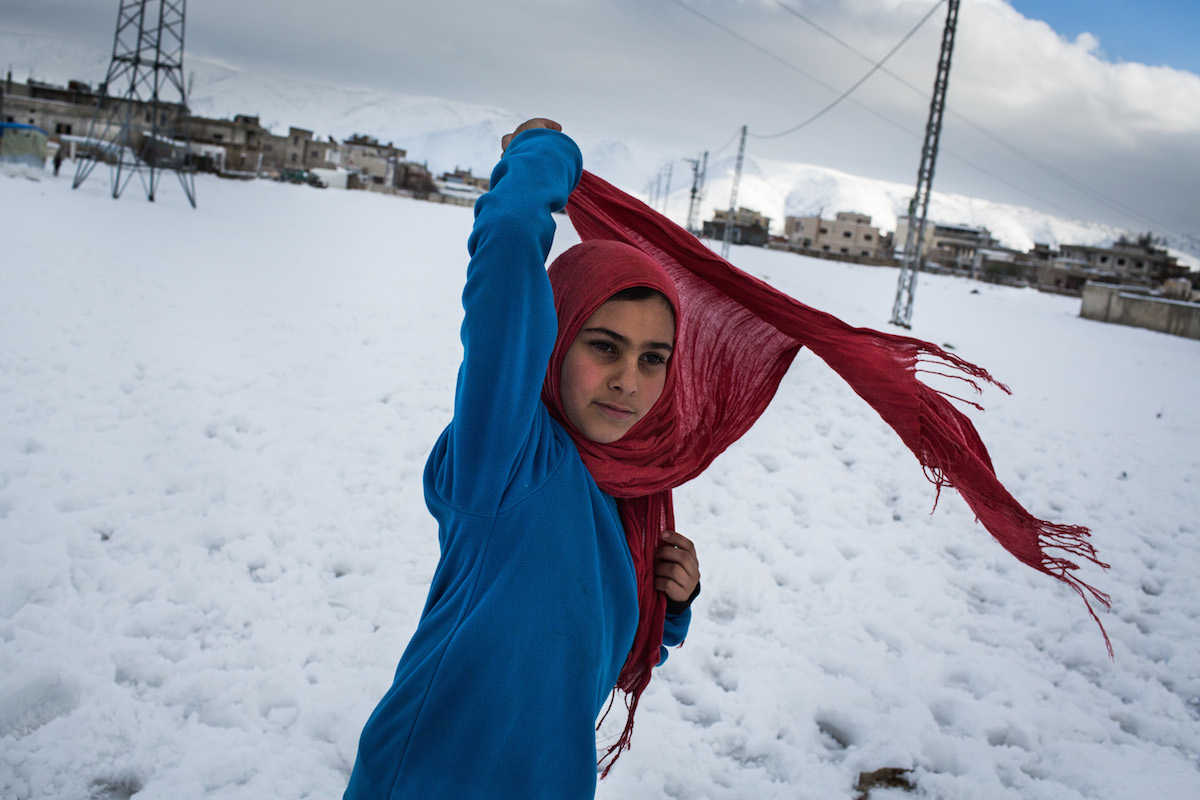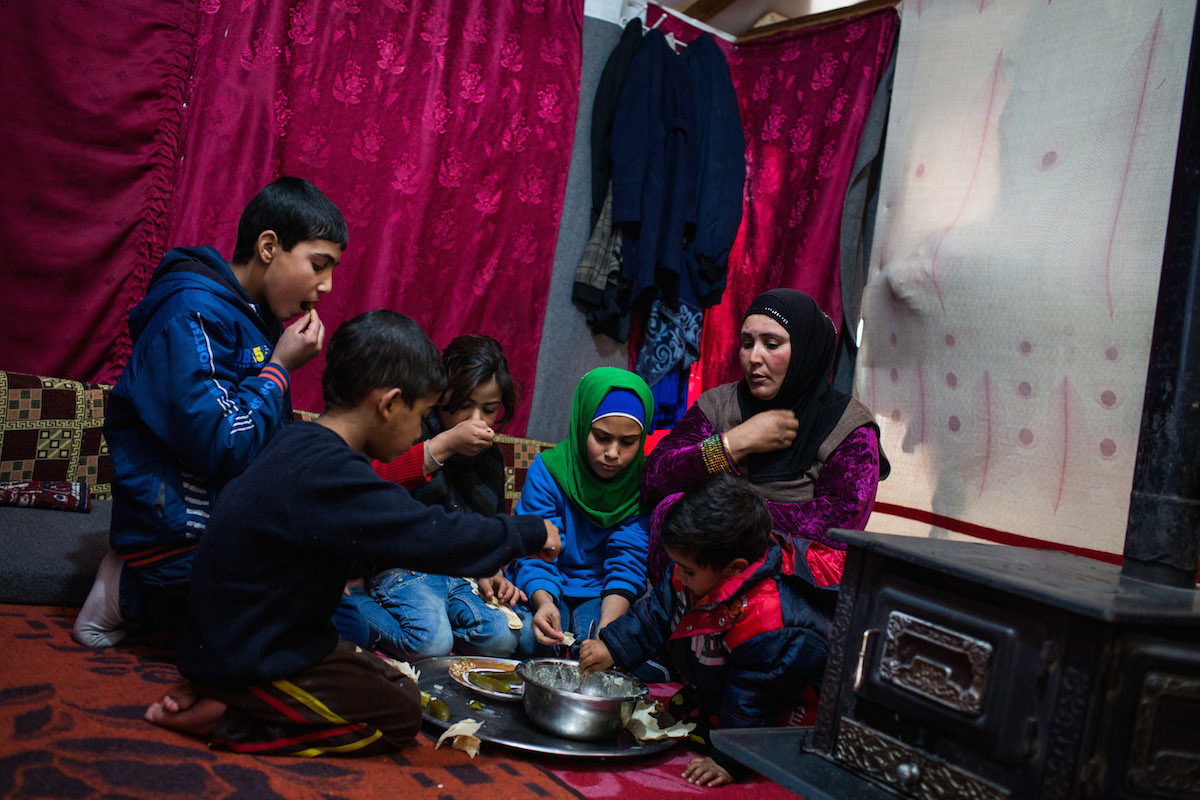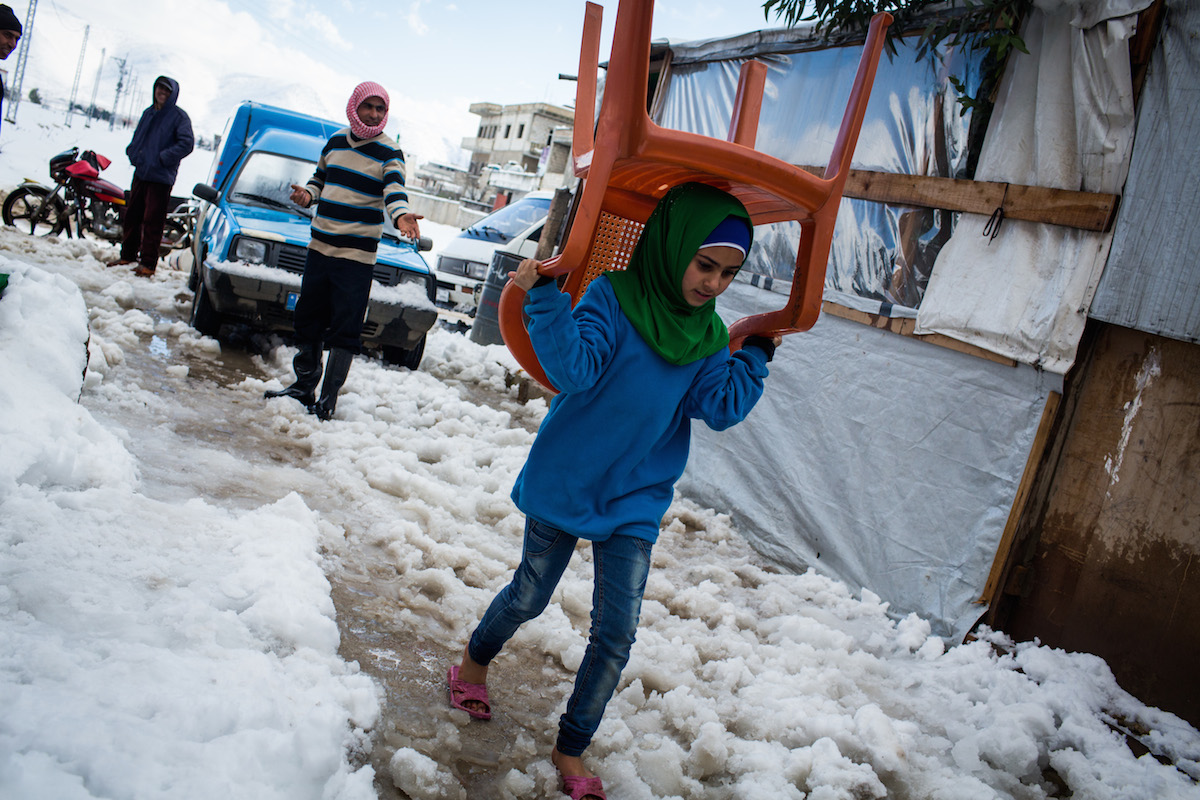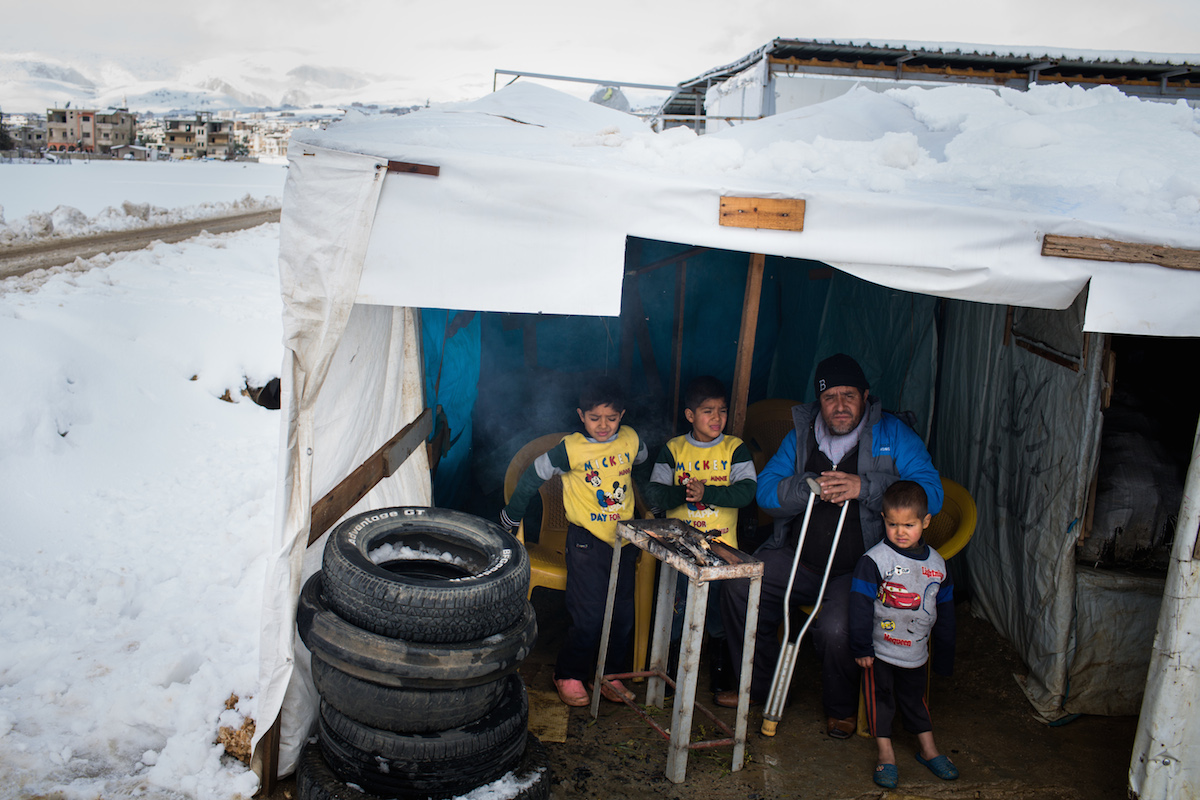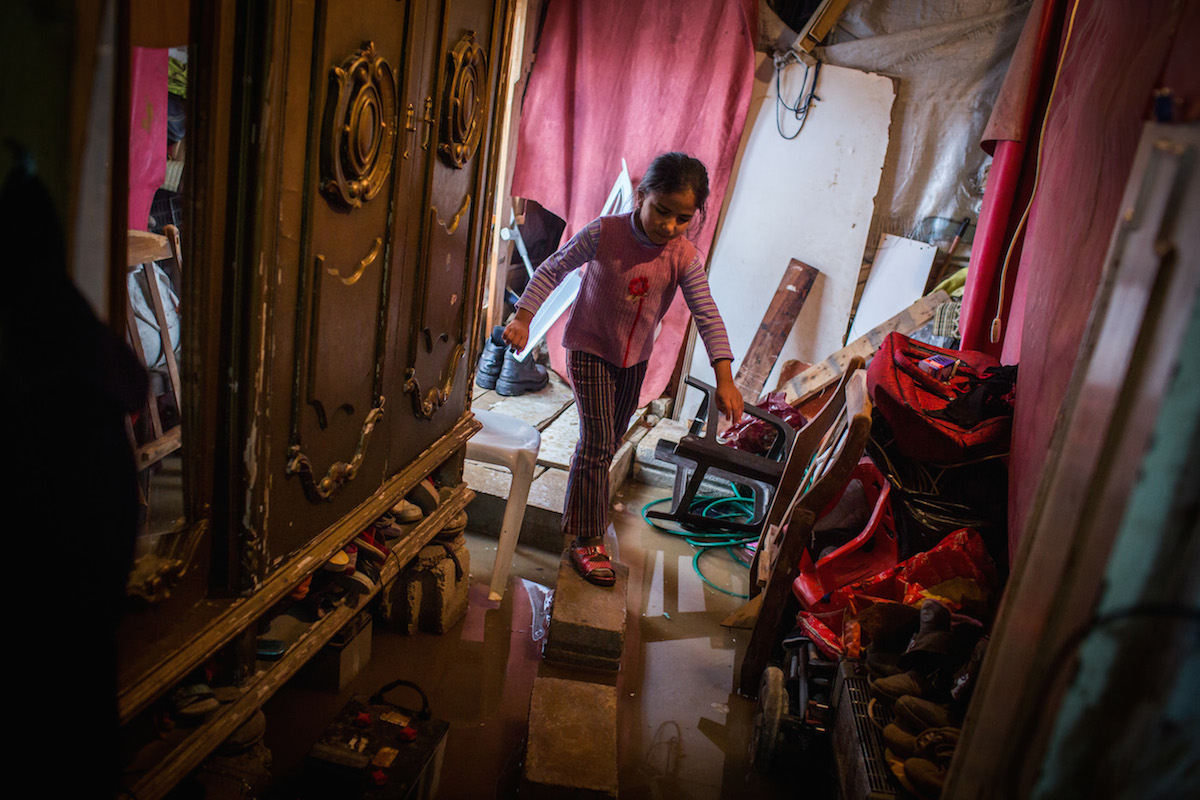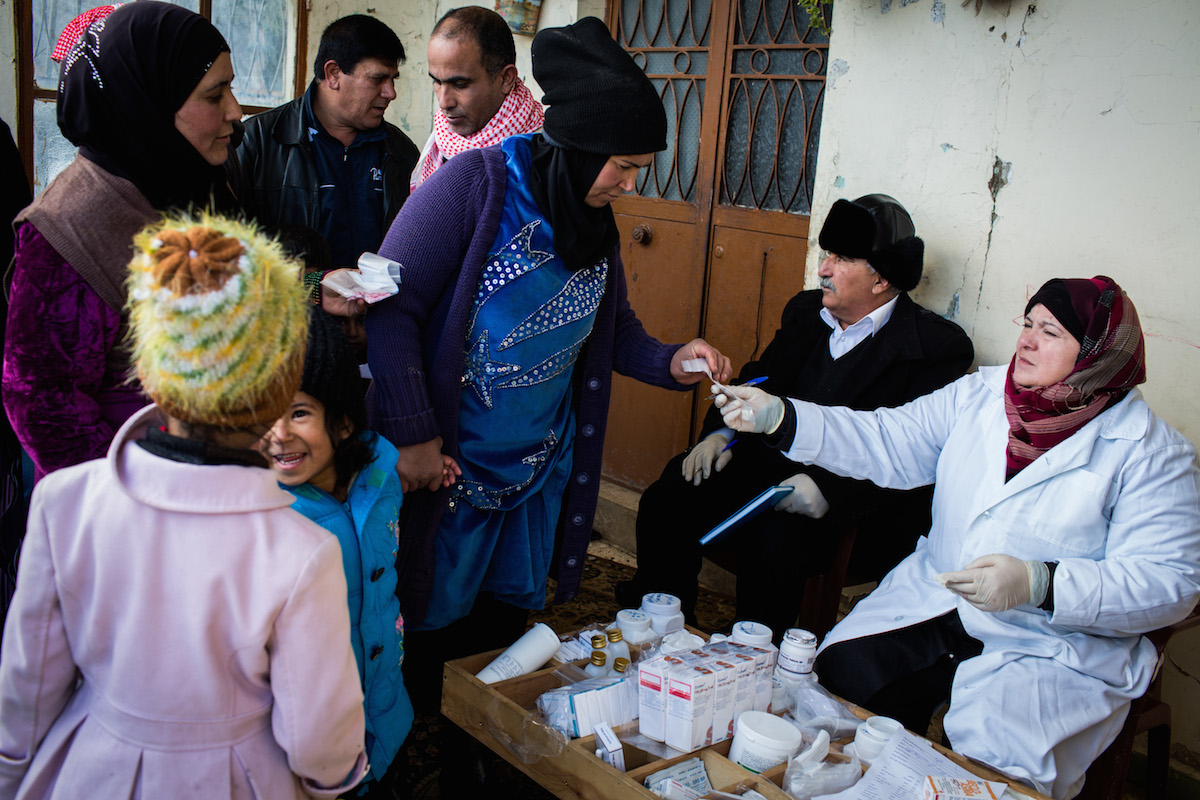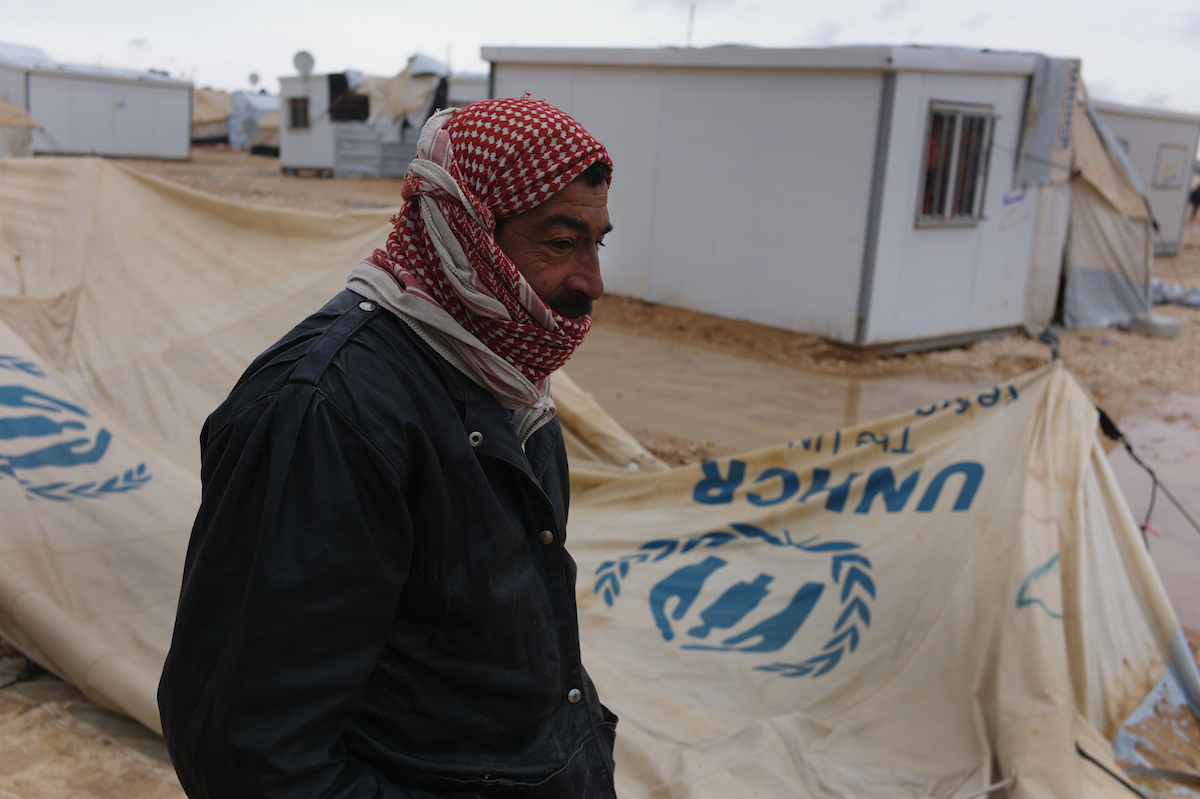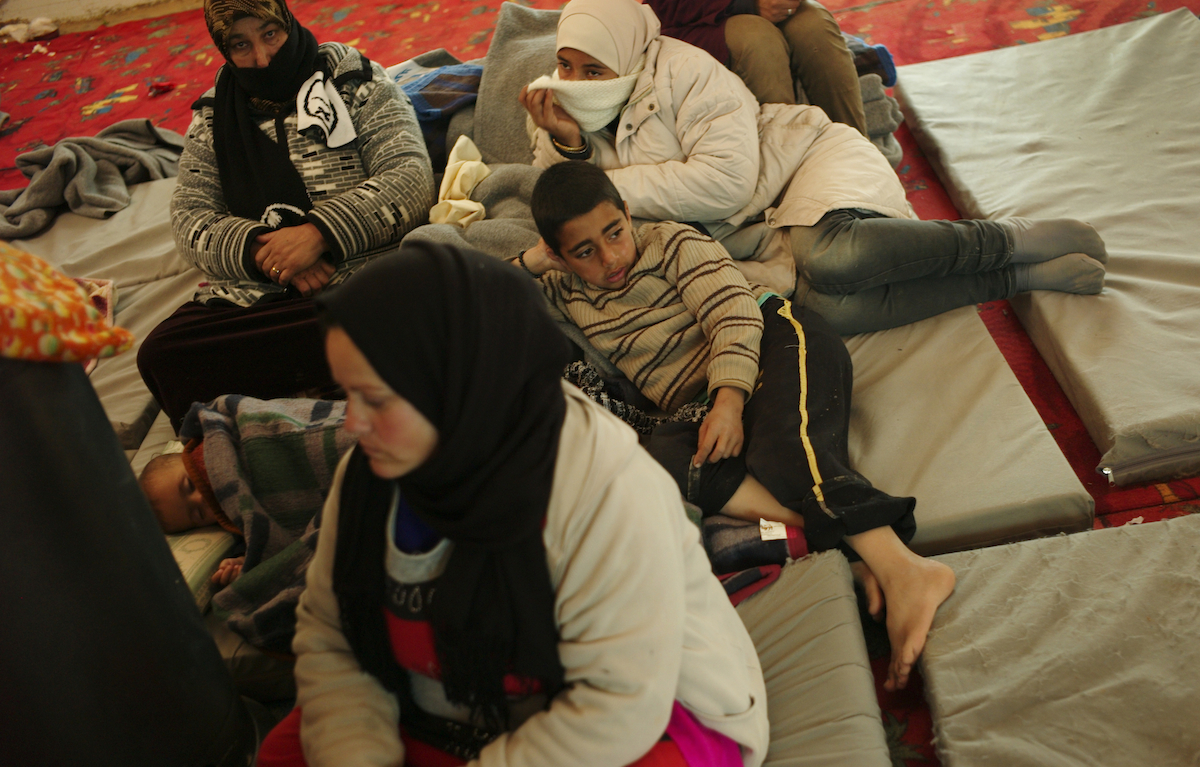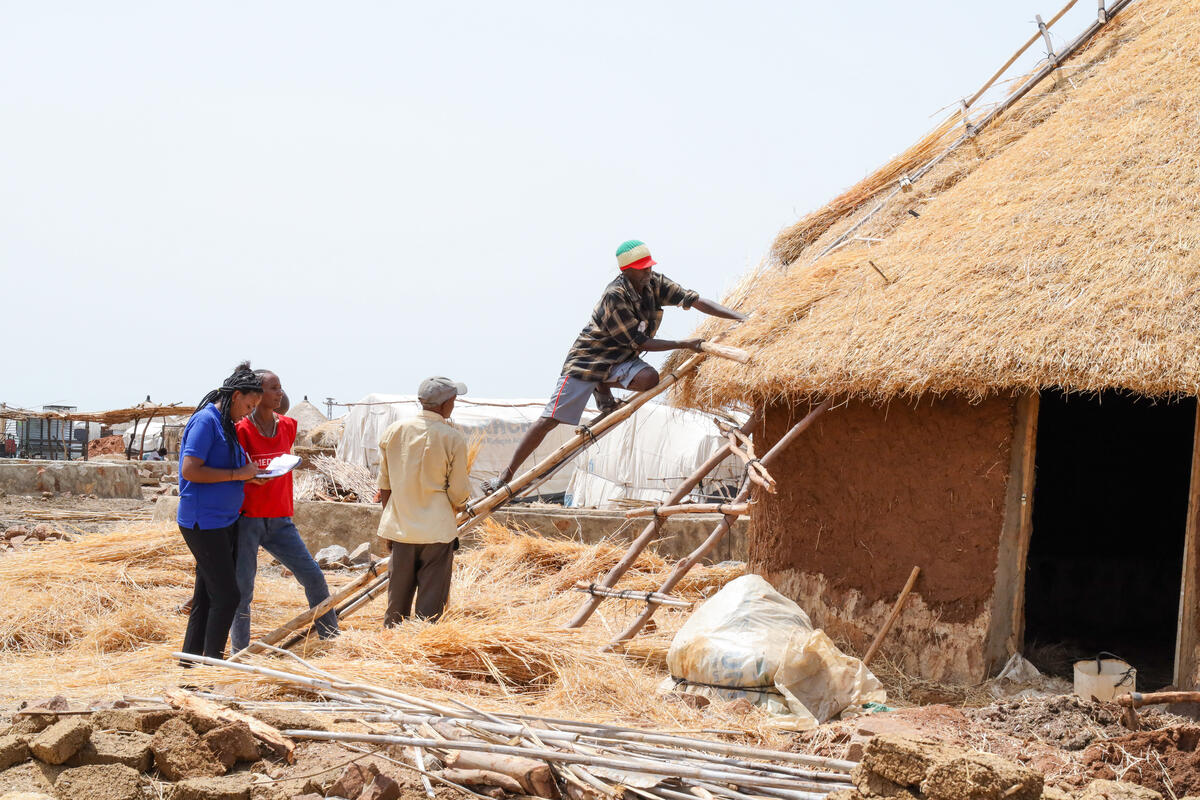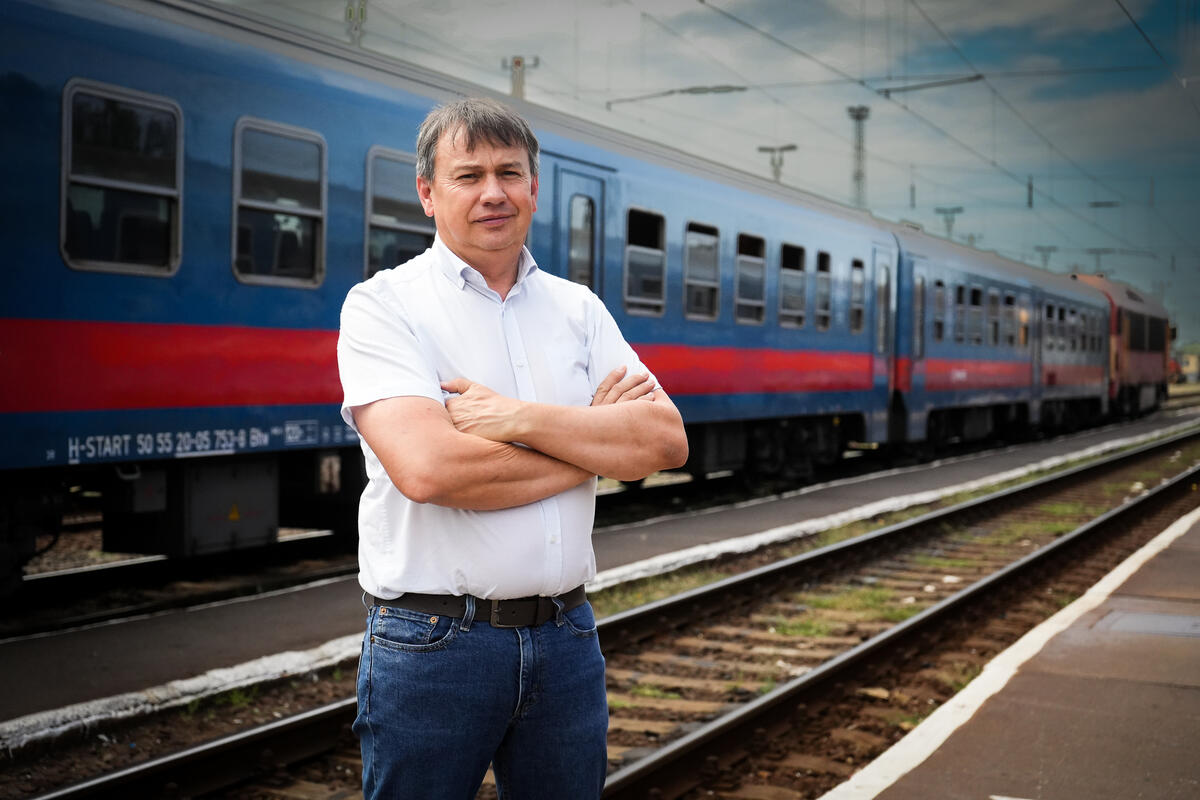The snow storm

The snow storm
Aisha, a mother of four from Syria, wraps a blanket around her shoulders as the wind beats against the walls of the tent. Outside, snow is piling up and soon the family's food will run out.
"We are really scared of the storm," she says, shivering as she hands some fruit to her children. "My husband must go on the roof every hour to clear the snow and I'm worried he might fall."
Bathed in the dim orange glow of a wood-burning stove, 36-year-old Aisha looks exhausted. This will be her family's fourth winter away from home, and storms like these only compound their sense of isolation and despair. "UNHCR took care of us with blankets and sheeting, and the stove is very warm – but we need wood," she says.
It's less than a week into 2015, and a fierce storm has descended on Lebanon. Heavy snow and icy winds sweep through the mountains of the Bekaa Valley, blocking roads and leaving thousands of refugees stranded. Temperatures plummet. Many people, already displaced, try desperately to secure their shelters against the wind. Some are forced to dig their way out.
There are more than 850 informal refugee settlements in the Bekaa Valley, set up in vacant lots, abandoned buildings, garages, sheds and on farmland. Now, as strong winds batter the area, scores of the makeshift shelters have collapsed. UNHCR and its partners are working to provide blankets, plastic sheeting and materials to repair shelters with, but much more needs to be done.
Twenty-year-old Hany, who lives in a tented settlement, sees that people are beginning to panic. "People are scared if it keeps snowing because the tents won't hold up against its weight," he says, as an elderly woman trudges past him through the blizzard. He gazes down at his mobile phone – his lifeline to the outside world – which he uses to take photos and send them to his friends. Now, it is dead. "We haven't had electricity since yesterday."
Almost 250,000 people living in the Bekaa Valley's unfinished buildings and informal settlements are battling the increasingly poor conditions. But the suffering doesn't stop there. Refugees living on Mount Lebanon, in Beirut and in the north and south of the country are also struggling to cope.
Jordan, too, is facing sub-zero temperatures. At Za'atari refugee camp, where around 16,000 people (or around six per cent of the 80,000 residents) still live in tents, snow has arrived, coating the desert landscape in a freezing white blanket.
But it is perhaps the aftermath of the storm that people fear the most, when the snow melts and tents flood. They also worry about access to clean water. Today, in a region where over 3.3 million refugees have taken shelter from Syria's civil war, some are finding that the few possessions they had managed to salvage from their former homes are once again at risk.
Efforts to minimise the damage are in full swing. UNHCR has been preparing emergency stocks since October as part of its winter programme and is now distributing fuel vouchers, blankets, stoves and food parcels.
Amid the patchwork of shelters at Jordan's Za'atari camp, 44-year-old Shetta stands and stares at the collapsed tarpaulin that until yesterday had been his home. After a stormy night, he is waiting out in the cold for help to rebuild his tent.
A few metres away, Suleimane and his wife, Hasna, have narrowly avoided tragedy. Overnight, their tent collapsed while and their 13 children were inside. Hasna, who fled Damascus with her family two years ago, visibly trembles at the memory. "The wind was too strong and the kids inside the tent were frightened," she says, her voice cracking. "When the tent collapsed with us in it, we rushed outside to a neighbour's caravan, but we couldn't save our belongings."
UNHCR staff and partners are working day and night, and have set up a dozen safe centres with mattresses, extra blankets and plenty of heaters. Hundreds have taken shelter in the safe centres; a few have even been sent to hospital for treatment.
With the snow, gale-force winds and icy conditions set to continue over the coming days, there's little respite in store for the region's refugees.


